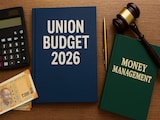- Leaders at the Arab and Islamic Summit in Qatar condemned Israel but took minimal action
- No sanctions, embargoes, or diplomatic downgrades against Israel were announced
- UAE, Bahrain, and Morocco, Abraham Accords signatories, stayed silent on Israel
At the much-anticipated Arab and Islamic Summit in Qatar, leaders from across the Muslim world gathered amid soaring outrage over Israel's war on Gaza. But despite fiery rhetoric, the summit stopped short of issuing any punitive measures against Tel Aviv - triggering disappointment in many Muslim capitals.
Leaders also berated Israel over its recent attack on Hamas leaders in Doha, but ultimately agreed to take only minimal action.
A Summit of Strong Words, Little Action
The Monday summit came in the hopes of presenting a united response to Israel's action in Gaza, but the final statement only called on states to "take all possible legal and effective measures to prevent Israel from continuing its actions against the Palestinian people."
From formal condemnations to calls for international investigations, the summit's joint communique delivered a wave of diplomatic pressure. However, no sanctions, oil embargoes, or downgrades of ties were announced - a glaring omission, given the scale of destruction in Gaza.
Abraham Accords Signatories Stay Silent
Notably, the UAE, Bahrain, and Morocco - key signatories to the Abraham Accords - refrained from making any significant statements against Israel. Their silence stood out, especially as Israel continues to deepen military operations in Palestinian territories.
Incidentally, Monday was the fifth anniversary of the Bahrain and UAE signing the Abraham Accords that marked their formal recognition of Israel.
MBS Present, But Silent
Saudi Crown Prince Mohammed bin Salman (MBS) was present at the summit, but did not address the gathering - a move that surprised many, given Riyadh's regional clout and the growing calls for stronger action. His absence from the speaker's list was viewed by analysts as a signal of Saudi caution, perhaps driven by geopolitical calculations.
Chairman of the Presidential Leadership Council of the Republic of Yemen, Dr. Rashad Mohammed Al-Alimi, called for adopting a comprehensive Arab and Islamic approach to joint action and collective measures to curb Israeli expansionist policies and the illusion of regional hegemony. He also criticised the Houthis by stating, "The geopolitical challenges we face today prove that the expansionist regional states and armed groups in the region are two sides of the same coin."
A Familiar Pattern
In the end, the Doha Summit reflected a familiar pattern: strong language, but little in the way of consequences for Israel. Many observers are now questioning whether the Arab world's unity is more performative than political - especially as Palestinian suffering continues with no ceasefire in sight.















